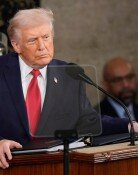Volatile Economy Makes Corporate Planning Difficult
Volatile Economy Makes Corporate Planning Difficult
Posted October. 17, 2005 06:38,
Everything is so unpredictable
Major corporations like Samsung, Hyundai-Kia Motors, LG, and SK are all struggling to draw up business plans for next year.
Next years economic and political issues are unpredictable. Even planning a year ahead for our business is challenging, let alone a mid- to long-term strategy, said an executive of a large corporation in frustration.
Subsidiaries of each of those large companies have started working on a yearly plan based on economic projections published by economic research institutes. But they all agree that the business environment is so uncertain that they are hardly able to formulate a good plan.
Things are complicated by political variables such as regional elections in particular. Businesspeople complain that doing business in Korea is compared to driving in thick fog.
Business Circle: We need a plan for next year
Samsung has decided to base its corporate plans on the economic growth forecast of 4.8 percent for 2006 issued by the Samsung Economic Research Institute last week. Accordingly, each of Samsungs subsidiaries will plan its business operations next year.
However, the Samsung Group Restructuring Headquarters circulated Samsung Groups own growth estimate throughout all its subsidiaries. Compared to last year, the planning is going slower. Each of the subsidiaries used to complete a draft by mid-October. Then, the CEOs used to consult us at the restructuring headquarters. By mid-November, new yearly business plans were finalized. Inside and outside the group, a lot of things have been happening. So it is quite difficult to complete the planning job for next year, said an insider of the restructuring headquarters.
LG would like to bring its group-wide planning to an end by the end of November. Things are not clear on the investment front. And we cant estimate exactly how main economic indicators, including oil prices, exchange rate and stock prices, will move, said the conglomerate. Moreover, it is the general opinion that next year, political as well as economic variables will be there to complicate matters for corporations when they devise investment plans.
Hyundai and Kia Motors usually focus their attention on foreign exchange rates and labor market conditions. We are considering another overseas manufacturing facility. Due to fluctuations in the foreign exchange market, its hard to reach a final decision. Workers go on strike almost annually. So the biggest variable next year is labor market conditions, pointed out a Hyundai Motor official.
One of the management priorities at SK Group for next year is austerity. We dont want to raise oil prices at the pump to offset rising crude oil prices. To a refinery, high oil prices are the biggest management risk, said an SK employee.
Other large conglomerates such as Hanhwa Group, GS, and POSCO are having a difficult time coming up with investment plans for next year because conditions in the economy are highly volatile.
Fretting over political effects on the economy
Big businesses are burdened not only by economic uncertainties but also by political events that will happen next year, which will probably be accompanied by much confusion.
I dont rule out the possibility that candidates will intensify their bashing of big business before and after next years regional elections to woo voters. The governments economic policy is inevitably influenced by politics. I am worried that the government might pursue a populist economic policy, said one executive from a large corporation.
My company wants to invest more when the economy is sluggish. But results from next years elections will be weighing heavily down on businessmen. I am anxious that such a political and social atmosphere might dampen investment, said an official from another conglomerate.
If politicians again hold big businesses hostage to win over voters, that will dash any hopes of economic recovery, lamented a senior employee of yet another group.
The government urges large corporations to expand investment and hire more people. But it must do more than mere verbal encouragement. Above all, it must create a more business-friendly environment to promote entrepreneurship, said an official of the Federation of Korean Industries.






![‘부화방탕 대명사’ 북한 2인자 최룡해의 퇴장 [주성하의 ‘北토크’]](https://dimg.donga.com/c/138/175/90/1/wps/NEWS/IMAGE/2026/02/27/133414028.1.jpg)
